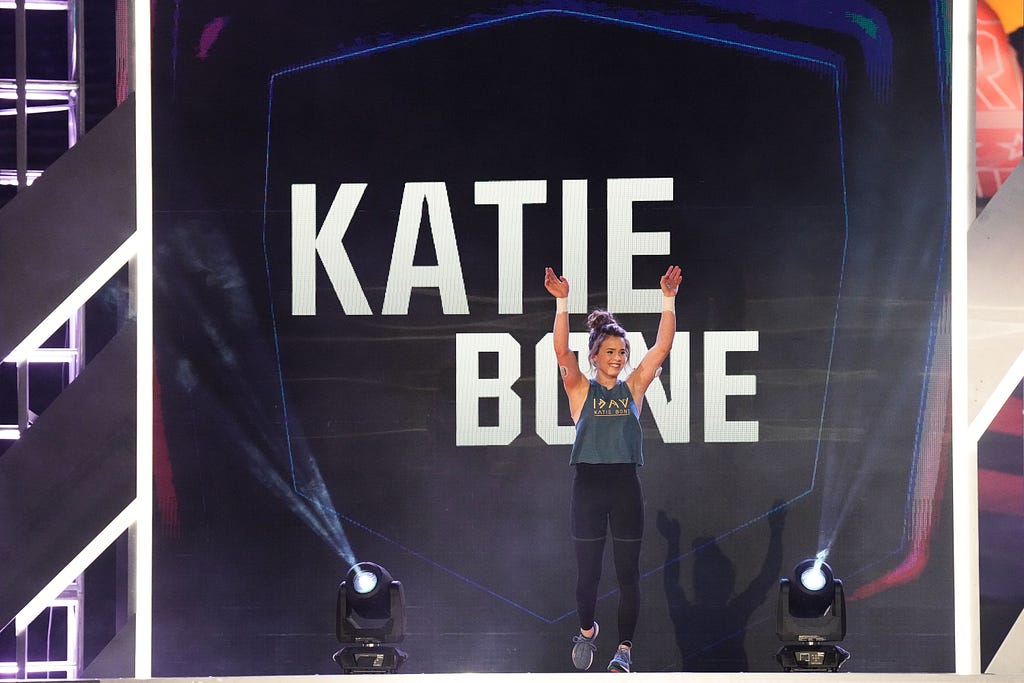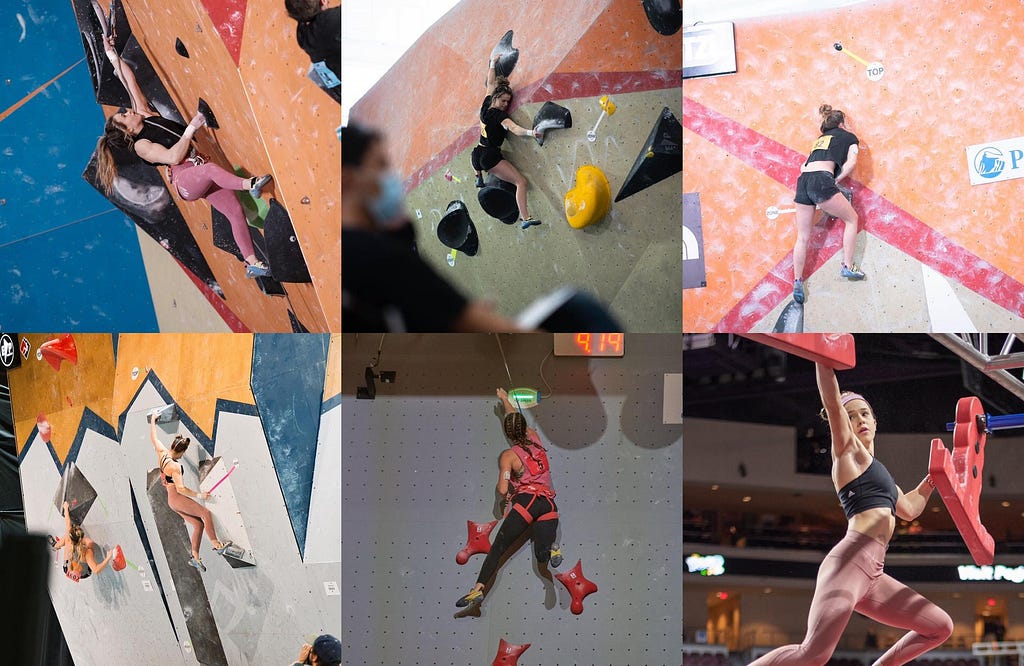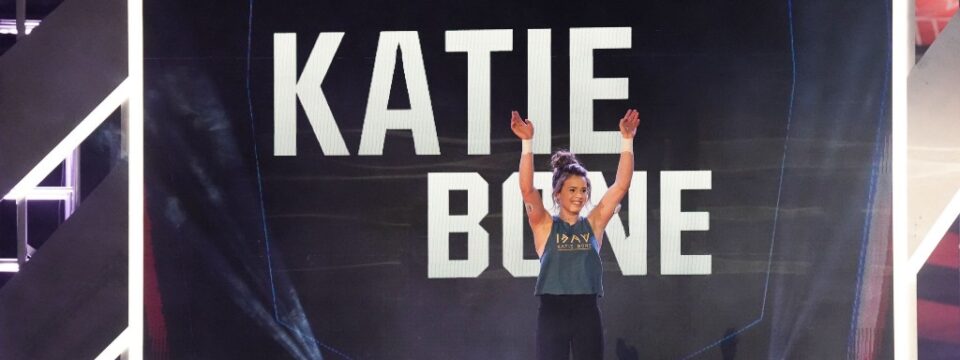
Never Be Afraid of Failure. Look at fear as a natural part of growing and learning — failure can be a better teacher than winning. With my fall in the big climbing competition I mentioned earlier, I had to learn how to fail successfully.
As part of my series about young people who are making an important social impact”, I had the pleasure of interviewing Katie Bone.
Katie Bone is a 16 year old from Albuquerque, New Mexico living with type 1 diabetes. Diagnosed at 11 years old, this young athlete has never let her type 1 diabetes hold her back. In addition to being a nationally-ranked rock climber and now American Ninja Warrior competitor, she continuously advocates for diabetes awareness and representation.
Thank you so much for joining us in this interview series! Before we dig in, our readers would like to get to know you a bit. Can you tell us a bit about how you grew up?
I grew up in sports from the time I could walk, and I have an older brother who is very competitive in athletics, so from a young age, I wanted to do what he did. I played soccer and gymnastics. At eight years old I got into rock climbing and I fell in love. Three years ago, I asked a friend about American Ninja Warrior, as I had been curious about it for a while. They told me to sign up for a competition… and the rest is history!
Is there a particular book or organization that made a significant impact on you growing up? Can you share a story or explain why it resonated with you so much?
After I was diagnosed with type 1 diabetes (“T1D”), JDRF [the world’s largest nonprofit funder of type 1 diabetes research] played a big part in my first stages of understanding my new life, and gave me and my family a sense of hope.
How do you define “Making A Difference”? Can you explain what you mean or give an example?
To me, making a difference is about sharing what you are passionate about with others, especially when it comes to giving permission to others with or without T1D, they can achieve and do the things they dream of doing.
Ok super. Let’s now jump to the main part of our interview. You are currently making an impact on society through your journey on American Ninja Warrior. Can you tell us a bit about what you are trying to change in our world today?
One of my main goals in doing Ninja is to show kids with T1D and parents with kids who have T1D that they don’t have to be ashamed of their medical devices. They have something others are not dealing with, but they still can do anything they want and can achieve any goal.
Can you tell us the backstory about what inspired you to originally feel passionate about this cause?
When I was first diagnosed at the age of 11, it was really scary, and I know what it feels like to not want to have your medical devices visible. I’ve been hearing from the community — from kids with T1D not wanting to wear their Omnipod [a tubeless insulin pump] and their continuous glucose monitor because it makes them different, including the kid I babysit. He told me wearing his medical devices made him feel weird, but then he saw me wearing mine, and he felt less alone — and actually inspired to show off his Omnipod.

Many of us have ideas, dreams, and passions, but never manifest them. We don’t always get up and just do it. But you did. Was there an “Aha Moment” that made you decide that you were actually going to step up and do it? What was that final trigger?
For the American Ninja Warrior qualifying round, when we walked into the Alamo Dome, it was the first time all season it felt real, I’m actually doing this! I reminded myself, I GET to do this, I get to walk across this stage, proudly displaying my Omnipod and my shirt I wear on Ninja — which says “I am greater than my highs and lows” [about my blood sugar] — and use this platform for good.
Can you share the most interesting story that happened to you since you started your journey of representation?
After the qualifying round of Ninja aired, I received an outpouring of messages and comments from parents of kids with T1D and adults with T1D, about their own personal stories with diabetes and what it meant for them to see my Omnipod and continuous glucose monitor on a national stage. One little girl with T1D, upon seeing me on Ninja, said to her mom “I can do anything, mommy!”
Can you share a story about the funniest mistake you made when you were first starting?
In the last year, I was at a big climbing competition and I totally screwed up in the start, with 10,000 people watching, including a ton of Ninjas. I can laugh about it now, but at the time, it was horrible.
Can you tell us what lesson or take away you learned from that?
I truly learned to slow down, think more, and embrace making mistakes. There is so much power in getting up and trying again, dusting off disappointment. I try to look at failure as feedback.
None of us can be successful without some help along the way. Did you have mentors or cheerleaders who helped you to succeed? Can you tell us a story about their influence?
Everyone I’ve been surrounded by in my community, other climbers, teachers, coaches, Ninjas in Colorado have been my mentors and cheerleaders. And of course, my parents — they’ve helped me keep my hope up and have brought me so much support.
Without saying specific names, can you tell us a story about a particular individual who was impacted or helped by your cause?
The little boy I babysit who has T1D has seen me climb and compete on American Ninja Warrior all while wearing my medical devices. Me doing that has shown him that he can do the same and that diabetes doesn’t have to limit him. He loves when we are both wearing our “robot parts” in the same locations because it helps him feel less alone in this.
Are there two things the community/society/politicians can do to help you address the root of the problem you are trying to solve?
Continue to champion and support advocacy work. The work that JDRF does with and for the diabetes community is incredible and makes us feel SEEN. I went to D.C. to share my story with elected officials when I was 13, to share what it’s like to live with T1D, and to put a face to diabetes.
Provide more platforms for representation of T1D. Showing continuous glucose monitors and Omnipods in media makes an impact. When one is shown, the community feels validated and less alone. The only thing I knew about diabetes before I was diagnosed was my grandma who was very sick with diabetes at the end of her life — we have to write and share new stories, new ideas about what’s possible for people living with T1D.
Fantastic. Here is the main question of the interview. What are your “5 things I wish someone told me when I first started” and why?
Never Be Afraid of Failure. Look at fear as a natural part of growing and learning — failure can be a better teacher than winning. With my fall in the big climbing competition I mentioned earlier, I had to learn how to fail successfully.
Be Visible. At first, I didn’t want to show my medical devices all the time, but they allow me to compete and live my life to the fullest and thrive with T1D.
The Power of Community. Finding your community and realizing there is one for everyone is so important. Teenage girls reach out to me all the time, sharing that seeing me do what I do makes them feel less alone. Shortly after my diagnosis, I heard about a diabetes camp — I wasn’t excited to go at first — but I’m so glad I did — because it showed me that I am in fact not alone in this.
You Do Not Need to Be Perfect. Many people do not share the bad things on social media, they tend to post about the good things and the wins, and so many seem to have perfect lives. It’s OK to not be perfect — and it’s OK to share the hard days. Last Nationals [Climbing National Championships] was really hard and not my best, and I decided to not share any of it on social media, it was something that I wanted to keep private. However, it made me realize that people tend to not share the bad or hard moments and that no one’s life is perfect.
Be Unapologetically Yourself. And in turn, you give permission to others to be themselves. In the last year, I’ve figured out who I am and I knew exactly why I was doing Ninja this year, which helped with my mental game and approach before and after competition. To have full potential on Ninja, I know I had to be so steadfast in why I was there, and it helped me realize me being there means I had already won.
If you could tell other young people one thing about why they should consider making a positive impact on our society, like you, what would you tell them?
Just go for it! If you can find what you truly love and are passionate about it, it becomes part of your identity, just being yourself and sharing what you love can make an impact.
Is there a person in the world, or in the U.S. with whom you would like to have a private breakfast or lunch with, and why? He or she might just see this, especially if we tag them. 🙂
Surfer Bethany Hamilton has made a huge impact on my life. Her posts, her entire story and her determination with having one arm and still achieving greatness have been very inspiring. Her story helped me know that I can do this, she did everything she wanted to do even when she wanted to give up. Her story helps me in more ways than I even realize. I had to make a decision if I was going to do all this despite my diabetes because I can hate diabetes and love life at the same time.
How can our readers follow you online?
https://www.instagram.com/_katiebone_/?hl=en
This was very meaningful, thank you so much. We wish you only continued success on your great work!
Young Change Makers: Why and How Katie Bone Is Helping To Change Our World was originally published in Authority Magazine on Medium, where people are continuing the conversation by highlighting and responding to this story.
